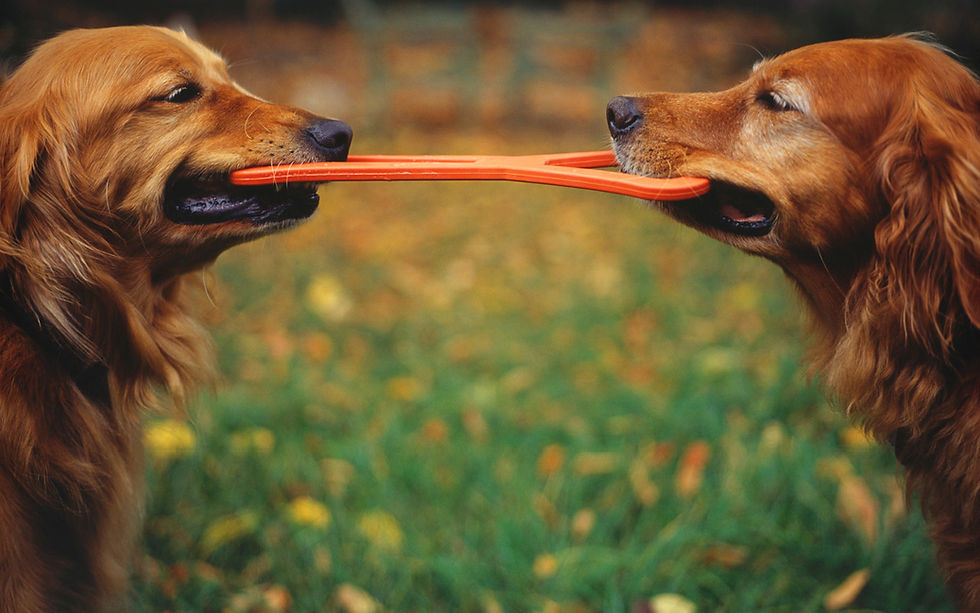
Most of the calls I get about fighting dogs fall into a handful of categories, with some overlap:
1) two female dogs are fighting,
2) a third dog recently joined the family,
3) a puppy has joined a family where they already had a senior dog,
4) the youngest dog has recently turned 2 (e.g. reached social maturity),
5) the senior dog is old enough to have less accurate vision, hearing, and perhaps has arthritis,
6) the dogs aren't really fighting, they are playing roughly but it looks and sounds worrisome to the people,
7) a major stressor has affected the household (moving, new baby, big routine changes, etc...)
Sometimes the dogs are fighting over items like food or toys or space. Other times it might be hard to tell what is starting the fights. This excellent article goes into more detail about the myriad of reasons dog may be having altercations.
Mixed age dog packs also have special requirements, as explained here. If the problem seems mild, try making one dog predict attention for the other, as discussed here.
The first thing you need to do in the case of more serious altercations is "crate/rotate" which means one dog is confined and the other dog is out, then rotate. Here's a good illustration of some ways to get this done and why. Do not let the dogs "fight it out."
You will likely need professional assistance for the work involved in changing the behavior. Here is a preview. If one dog is trying to kill the other dog (grab and shake) or if there is a big size difference, you may need to keep them separated indefinitely. Always take a small dog to the vet after a fight with a larger dog to check for internal injuries.
